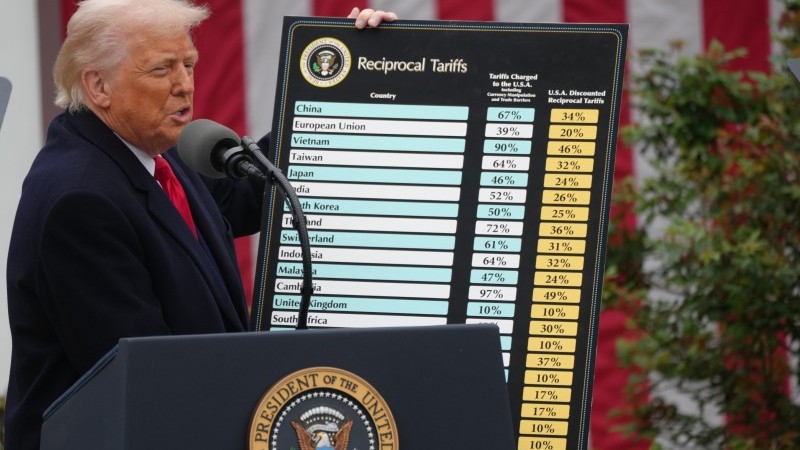Business
Australia Raises International Student Visa Fees by 225% to Manage Migration

Australia has raised student visa application fees from $710 to $1,600, effective July 1, 2024. This 225% increase makes Australia the most expensive country for student visa applications, surpassing costs in the United States (approximately US$185) and Canada (C$150 or US$110).
Government Strategy
This fee hike is part of Australia’s strategy to manage high migration levels that have put pressure on the housing market. Despite international education contributing $36.4 billion to the economy in 2022-2023, the government is implementing measures to balance the influx of international students with the country’s capacity to accommodate them.
Key Changes
- Visa Fee Increase:
- Student visa fee: $1,600
- Additional charges for accompanying family members: $1,445 for each person aged 18 and over, and $390 for those under 18.
- Restrictions on Onshore Applications:
- Visitor visa holders and students on temporary graduate visas are now prohibited from applying for student visas while in Australia.
- Increased Funding Requirements:
- International students must now demonstrate funds of at least $29,710, up from $24,505. This is about $5,000 higher than what is required for a Canadian study permit application and aligns with 75% of Australia’s national minimum wage.
- Tightening Visa Regulations:
- Measures have been introduced to close loopholes that allowed international students to overstay their visas. This move addresses the significant rise in students on second or subsequent student visas, which exceeded 150,000 in the 2022-2023 period.
Government’s Perspective
Clare O’Neil, the Australian Minister for Home Affairs and Cyber Security, stated that these changes are intended to restore integrity to the international education system and create a more manageable migration framework. The new measures aim to ensure that the benefits of international education are balanced with the country’s capacity to handle high immigration levels.
Impact and Monitoring
The impact of these changes on the international student market and Australia’s economy will be closely monitored. The government’s actions are designed to sustain the benefits of international education while maintaining a fair and sustainable migration system.
Business
Supreme Court strikes down Trump’s sweeping global tariffs

The Supreme Court of the United States has struck down some of the most expansive global tariffs introduced by Donald Trump, reshaping the legal landscape around executive authority in trade policy and creating fresh uncertainty in international markets.
In a 6–3 decision, the court ruled that the legal basis used by the administration to impose sweeping tariffs did not grant the president authority to do so. The judgment paves the way for potentially billions of dollars in refunds to businesses and states that challenged the measures.
At the centre of the case was the administration’s reliance on the International Emergency Economic Powers Act (IEEPA), a statute that allows the president to regulate economic activity during national emergencies. The White House argued the tariffs were justified under this authority as part of efforts to address drug trafficking and trade imbalances.
However, challengers contended that while the law permits regulation, it makes no explicit provision for imposing tariffs — a power traditionally reserved for Congress.
Writing for the majority, Chief Justice John Roberts emphasised that when Congress delegates tariff powers, it does so clearly and with defined limits.
The ruling affects duties introduced last year on imports from numerous countries, initially targeting partners such as Mexico, Canada, and China before expanding significantly during the administration’s “Liberation Day” policy push in April.
Supporters of the tariffs had argued they would stimulate domestic investment and revitalise US manufacturing. Critics, however, warned of higher import costs and broader economic ripple effects.
The case was widely viewed as a defining test of executive reach in trade matters — and of the judiciary’s readiness to scrutinise policy initiatives central to the administration’s agenda.
With the decision now issued, the balance between presidential emergency powers and congressional authority over taxation and trade has been more sharply defined, setting an important precedent for future administrations.
Business
US Inflation Slows as Used Car and Energy Prices Decline

Inflation in the United States eased in January, helped by falling costs for energy and used vehicles, offering encouraging signs for economic stability.
New data from the Labor Department showed the Consumer Price Index rose by 2.4% over the 12 months to January — down from 2.7% the previous month and marking the slowest pace of price growth since May.
The moderation in inflation is likely to strengthen arguments from President Donald Trump and others that the Federal Reserve may be able to reduce interest rates without reigniting price pressures.
While the latest figures point to steady progress toward the Fed’s 2% inflation target, analysts caution that the path ahead may not be entirely smooth. Some warn that inflation could stabilise or even edge higher if businesses begin passing on tariff-related costs to consumers, or if labour shortages push up service prices.
For now, however, there are few indications that tariffs are having a broad impact. Core commodity prices — excluding food and energy — remained largely unchanged during the month, suggesting underlying price pressures are contained.
Neil Birrell, chief investment officer at Premier Miton Investors, noted that while the longer-term effects of tariffs remain uncertain, January’s data may contain statistical quirks that influenced the outcome.
Even so, he said the report is likely to “ease the path towards a cut in rates sooner rather than later”.
“The US economy looks to be in fine fettle with growth strong, inflation stable, the job market looking firmer and a Fed that has room to manoeuvre,” he added.
Business
China bans hidden car door handles over safety concerns

China has announced a nationwide ban on hidden car door handles, becoming the first country to formally prohibit the design amid growing global scrutiny of electric vehicle (EV) safety and a renewed focus on passenger protection.
The new regulations, issued by the Ministry of Industry and Information Technology, will require all cars sold in China to be fitted with mechanical door releases on both the inside and outside. The rules are set to take effect on 1 January 2027, giving manufacturers time to adapt while signalling a clear shift towards more practical and safety-focused vehicle design.
Hidden door handles, which sit flush with the car body and often rely on electric power to deploy, were popularised by Tesla and have since become widespread across China’s rapidly expanding new energy vehicle (NEV) market. NEVs include fully electric cars, plug-in hybrids and hydrogen fuel-cell vehicles. According to figures cited by state-run China Daily, around 60% of the top 100 best-selling NEVs in China currently use hidden handles.
The decision follows a series of high-profile safety concerns, including two fatal crashes in China involving Xiaomi electric vehicles, where suspected power failures may have prevented occupants or rescuers from opening the doors. While investigations into those incidents are ongoing, regulators have moved proactively to reduce similar risks in the future.
Under the new standards, every passenger door except the boot must include a recessed space of at least 6cm by 2cm by 2.5cm on the exterior, ensuring that door handles are always accessible. Inside the vehicle, manufacturers will be required to clearly mark door-opening mechanisms with visible signs measuring at least 1cm by 0.7cm, making emergency exits easier to identify in stressful situations.
Cars that have already received regulatory approval and are close to entering the Chinese market will be granted an additional two-year grace period to update their designs, a move intended to balance safety improvements with industry stability and innovation.
Although the rules apply only to vehicles sold in China, the country’s central role in the global automotive industry means the impact is likely to be felt well beyond its borders. China is the world’s largest EV market and a major exporter of electric cars, components and technology, making its regulatory decisions highly influential.
International regulators are already paying close attention. Tesla’s door handle design is currently under investigation by US safety authorities, and European regulators are also considering whether similar measures are needed. In November, the US National Highway Traffic Safety Administration (NHTSA) opened an investigation into Tesla’s electric-powered door handles after receiving reports that they stopped working without warning. The probe focused on 2021 Model Y vehicles, with nine complaints recorded, including four cases where owners said they had to break windows to free occupants.
Chinese officials have framed the new rules as part of a broader effort to ensure that rapid innovation in the EV sector does not come at the expense of basic safety. By mandating simple, mechanical solutions alongside advanced technology, regulators say they are reinforcing consumer confidence and supporting the long-term, sustainable growth of the industry.
-

 News1 week ago
News1 week agoBritish Tourist Among 19 Victims in Tragic Nepal Bus Crash
-

 News1 week ago
News1 week agoMore than 5,000 flights cancelled as major snow storm blasts US north-east
-

 News1 week ago
News1 week agoTrump’s Global Tariff Rollout Begins at 10% Amid Policy Adjustments
-

 Entertainment1 week ago
Entertainment1 week agoRobert Carradine, dies aged 71
-

 News6 days ago
News6 days agoTram derails in Milan, leaving one dead and dozens injured
-

 News1 week ago
News1 week agoLouvre Director Steps Down Following Jewel Heist and Security Review
-

 Sports1 week ago
Sports1 week agoMan Utd ruled out signing Osimhen ‘because of Afcon’
-

 Sports1 week ago
Sports1 week agoJoshua crash driver case adjourned to March










